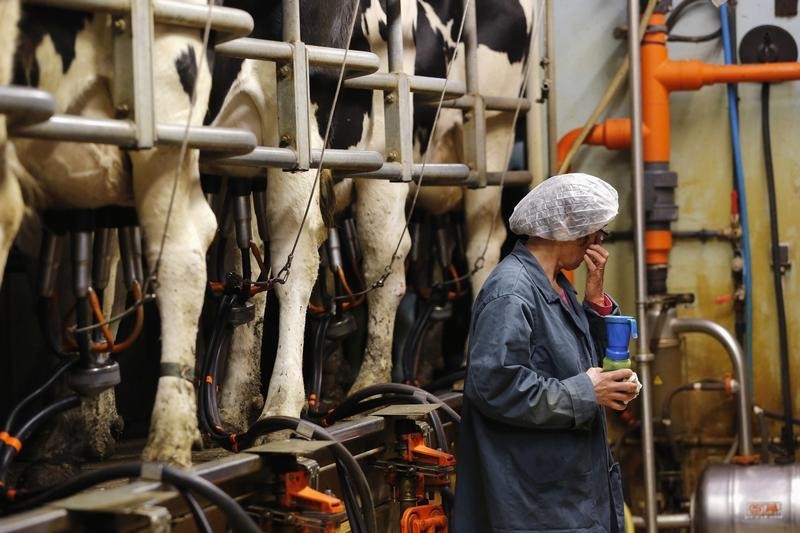(Adds Australian comment)
By Bernadette Christina Munthe
JAKARTA, Sept 26 (Reuters) - Indonesia has abolished its quota system for cattle imports, allowing companies to ship in livestock provided that they commit to the country's domestic breeding programme, the trade minister said on Monday.
Virtually all of Indonesia's cattle is shipped from Australia in trade that was worth nearly $600 million last year, but the Southeast Asian nation is restricting imports and pushing buyers to breed their own livestock inside the country to reduce its dependence on imports.
A trade rule introduced in August stipulates that one of every six imported cattle must be for breeding purposes. gone. There are no more quotas," Trade Minister Enggartiasto Lukita told reporters on Monday.
"If (companies) want to import, they will likely be allowed to, provided they import breeding (cattle) because this country needs a (cattle) population."
So far three companies have been granted approval to import a combined total of 300,000 feeder cattle through to the end of 2018, Lukita said, and more are expected. The companies had agreed to import 60,000 cattle for breeding, he added.
The ministry has said it expects Indonesia to import about 700,000 cattle for slaughter in 2017. Indonesian Feedlotter Association is unhappy with the new rule, saying it is unfeasible because feedlots would quickly fill with breeding cattle and calves, leaving insufficient room to accommodate cattle for slaughter.
"They will be uneconomical in no time," the association's executive director, Johny Liano, told Reuters.
Liano said the industry could only afford to set aside 20 percent of their feedlots for breeding purposes and that breeding cattle take up five times more space than cattle for slaughter.
Indonesia's feedlots have a total capacity for up to 350,000 cattle for slaughter, Liano said.
Australian cattle exporters said the ratio of feeder cattle to breeder cattle may mean exports fall from the previous system of quotas.
"The reaction has been a bit bombastic within Australia. A feeder animal has different requirements and takes up much less room than a breeder and so I'm cautious this will be a benefit to Australian exporters," said an executive at a livestock exporter, who declined to be named as he is not authorised to talk to the media.
Australia's chief commodity forecaster earlier this month forecast live cattle exports to Indonesia at just 600,000 head of cattle.
Since coming to power in October 2014, President Joko Widodo has curbed or delayed imports of raw sugar, beef and cattle, corn and rice, but the result has often been food shortages, volatile prices and worried investors.
Among efforts to stabilise meat prices, which have climbed as a result of the beef and cattle import restrictions, Indonesia has begun looking to import meat and cattle from different sources, including buffalo meat from India. (Writing by Fergus Jensen; Editing by Mark Potter and David Goodman and Christian Schmollinger)
